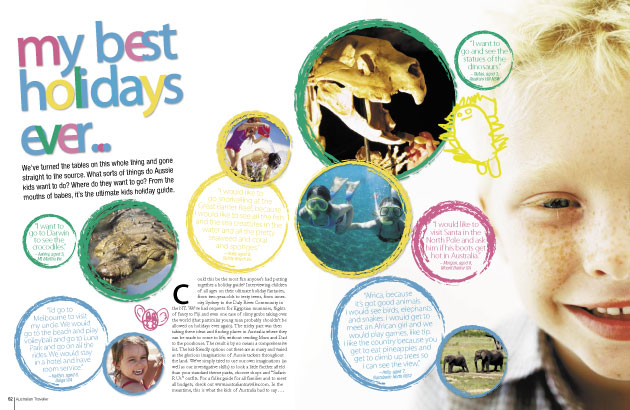Unit 11. HOLIDAYS

11.1. Listening Development
Assignment 1. Listen to the recording about the dangerous holiday activities and answer the following questions.
Which 3 dangerous holidays did the speakers have? Why were they dangerous?
Which of these 3 countries does the British government advise against going to?
Which unusual holiday is described in detail?
What details are given about the country and about its main tourist attraction?
Assignment 2. Listen to the recording about family travel. John McCarthy takes a look at family travel with novelist Gill Lewis who took her daughters spotting wildlife both abroad and in Scotland and Cornwall; writer Ben Hatch who toured Britain with his young children and holiday lettings agent Wendy Shand who explains how self-catering holidays can be more child friendly. Which are the most interesting points they discuss?
11.2. Vocabulary Enrichment
Assignment 1. Which of these expressions are used for the purposes specified in the table below? Complete the table with these expressions. Then add other expressions you know.
When you arrive at a hotel, you must check-in at the reception or front desk. The check-in process can take awhile since the receptionist has to find your reservation, request payment for the room, and then inform you about the hotel's policies and procedures. You are also given a key to your room at this time.
Hotels often distinguish themselves by the services they offer. Fancy hotels often have a concierge or porter to help you with a variety of tasks. They can help you get a taxi, make reservations at restaurants or plays for you, and give you advice about the city. Often, this person is also in charge of the bellboys, who carry your luggage or baggage up to the room for you.
In smaller and cheaper hotels, the job of concierge is done by the receptionist and a doorman, who opens the hotel doors and car doors for you.
These are nice services, especially after you've been traveling, but they're not free. It is common courtesy to tip the concierge and bellboys each time they help you.
Other features that are generally found in hotels are a lift or elevator to take you up to the floor your room is on; a lounge area or lobby where you can wait if you arrive before the check-in time; and a safe where you can store valuables.
In your room, there may be a single or double bed, depending on how many people are staying there. There may even be two single beds, or twin beds. Also in the room are a desk, a dresser to store your clothes in, a nightstand with a lamp beside the bed, a television with cable, heating and air conditioning.
If you're lucky, there may even be a mini-bar in your room. This is a small refrigerator that has tiny bottles of alcohol, as well as snacks. But beware: these are not free. In fact, they typically cost two to three times as much as they do in a grocery store. But many people pay the exuberant price for the convenience of not having to leave the hotel.
Another convenience that hotels offer is room service. To order room service, you call down to the reception and ask for a food item listed on the hotel's menu. The food is then brought to your room for you to enjoy. Remember, this is another service that deserves a tip.
Many hotels also have restaurants attached where breakfast is served in the morning. A hotel breakfast can range from a Continental buffet, which consists of you helping yourself to food that has been laid out for you and other hotel guests. The Continental breakfast is not very elaborate and is often included in the price of the room. However, you can also order prepared food from the restaurant's menu.
At the proper check-out time, which is often early, you must vacate the room so that the maids, or cleaning staff, can clean the rooms and make the beds. If you don't leave on time, charges may apply and you will have to pay extra money. Fortunately, you can ask for a wake-up call from the front desk so you won't sleep through check-out.
To get to your next destination, you can take an airport shuttle, which will take you directly to the airport. If a hotel doesn't have its own shuttle, it can usually arrange for one to pick you up at the hotel.
| Areas at the hotel |
|
| Service |
|
| People to help guests at the hotel |
|
| Services and favours expected to be given tips for |
|
| Things to do at arrival |
|
| Things to do before a visitor departs |
|
- Laundry and dry cleaning service
- Check-in
- Reception
- Cleaning staff
- Making reservations at restaurants
- Concierge
- Wake-up call
- Manager
- Cleaning the rooms
- Porter
- Room service
- Continental breakfast
- Restaurant
- Making the beds
- Bellboy
- To carry luggage up to the room
- Doorman
- Receptionist
- Lounge area (hotel lobby)
- Bar
- Check-out
- Giving advice about the city
- Chambermaid
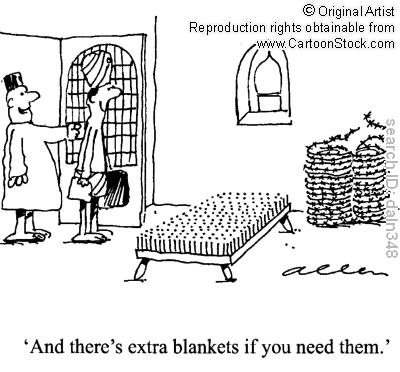
Assignment 2. Complete each definition with the correct word from the box.
Skiing Hitchhiking A cruise
- ...: A holiday organised by a travel agent which includes the cost of your hotel and transport.
- ...: A holiday spent in the mountains moving across the snow.
- ...: You do this when you want to see interesting buildings and places.
- ...: A holiday spent in a tent.
- ...: A holiday 'on the move' visiting different places.
- ...: A holiday spent on a ship.
- ...: A way of travelling by getting free lifts from motorists.
- ...: A holiday where you travel with your luggage on your back.
Assignment 3. Complete the gaps in the following sentences with the correct word from Assignment 2.
skiing hitchhiking cruise
- I hate the snow and I'm completely unfit so a ... holiday really doesn't interest me.
- We spent our holiday last year ... around Italy by coach.
- Elderly people often go on ... as they can take it easy on the ship.
- I think ... is the best way to travel - like a tortoise with your home on your back!
- We usually go on a ... holiday as we like it when the travel agent arranges everything for us.
- I'd love to go ... but my wife doesn't like the idea of sleeping in a tent.
- My sister wants to go ... but my dad doesn't think it's safe for a girl to get in a stranger's car.
- We did lots of ... while we were on holiday in London and took photographs of all the famous buildings.
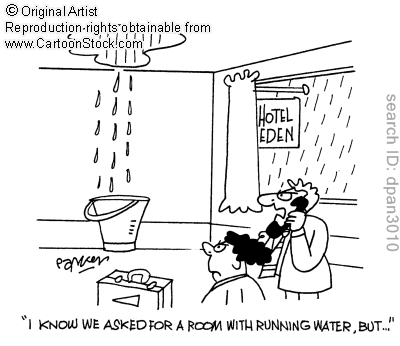
Assignment 4. Look through the following post and correct the 10 mistakes. The first one has been done for you as an example.
I don’t really have my most favouritest place, but I had an opportunity to swim to Gran Canaria, and although it was quite not cheap, I have to say I had a great time. It was in March last year, and the weather was perfect. I came back home such tanned ;-) The hotel was only 3 stars, but it was really OK. The food was magnificent. It was simply tasty. There were plenty of Englishmen and of course they were eating only chips :-@ Mine best was a duck. Really good.
The beach was black ^:-0 It wasn’t gold like, say, in Bulgaria, but then there were palms, so it was a nice variety.
I do recommend to go there – lovely place.
OK, it's your turn now to write something ;-)
Assignment 5. Translate the words and expressions in the brackets into English. Consult the Active Vocabulary Section.
PLANNING A HOLIDAY
Many people take their main holiday in summer, and although some people choose a (перерыв на отдых в последнюю минуту), others plan their holiday months in advance.
The beginning of the year is a good time for people to start looking at holiday (брошюры). (Туроператоры) (i.e.companies that organise holidays) as well as (турагенты) (the people that sell holidays) give lots of information about holiday (направления) and types of holiday. Apart from the traditional two-week (отпуск на берегу), you can choose from a range of holidays: a (круиз), i.e. holiday on a ship, an (активный отдых) – a holiday that involves walking, cycling, climbing or other sports, a (перерыв на отдых в другом городе), a weekend or a few days in a different city, and so on. A lot of people choose a (отдых по путевке), where flights and accommodation are included in the price. But many people prefer an independent holiday, where they make their own (организация путешествия).
If you travel independently, you will need to (заказать) your flights or train tickets. Unless you have an (дальнейший пункт следования), you will probably book a (обратный путь). Then you will need to (зарезервировать) at a hotel, or another place to stay, such as a campsite (if you are camping in a tent), or a caravan site (if you are staying in a caravan), or a (полупансион), a bed and breakfast.
For all types of foreign holidays, it is essential that you check you have all your (проездные документы). Make sure your (паспорт) hasn’t expired, and that you have a (виза) if necessary. If you are travelling to some countries, you also need to make sure that all your (прививки) – protection against illness – are up to date. For some countries you might need a vaccination against hepatitis, or yellow fever, for example.
As your (дата отъезда) gets nearer, you can start to plan the details of your journey. Perhaps it will be a good idea to buy a (путеводитель), or a (разговорник), if you don't speak much of the local language. Some people like to read up on (= get lots of background information on) where they are going, and find out about the (места, представляющие интерес) and "must-see" (достопримечательности). It's also fun to make a (список, что следует упаковать), so you don't forget any vital clothes or toiletries.
It's also a good idea to buy (местная валюта) in advance, if your flight gets in (= arrives) in the middle of the night, when no banks are open. Most airlines also advise you to take out (=get) (страховку) just in case your flight is delayed or cancelled, or if you get ill and need to be repatriated (which means to say to be sent back to your country).
Don't forget to make arrangements for your pets and your house while you're away. Put your dog into kennels (a dog hotel), and leave a key with your neighbour just in case! Hopefully your neighbour will (присмотрят за) your house while you're on holiday! Finally, get to the airport with plenty of time to spare. Nowadays it can take much longer to get through security and onto the plane. Have a nice trip and send your neighbour a (открытку)!
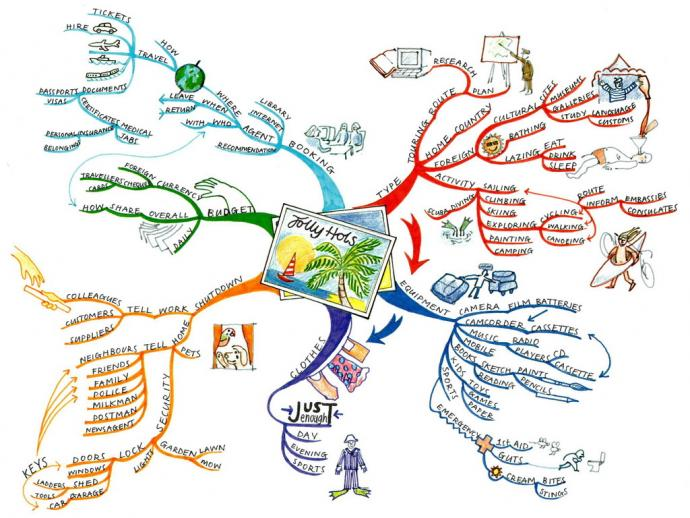
Assignment 6. Look at the list of amenities, facilities, and services at the hotel and mark those which you think are extremely important for you. Explain your choices.
- Laundry service-
- Dry cleaning service-
- Ice machine-
- Lounge-
- Porter / bellman-
- Newsstand-
- Shoe shine-
- Safety deposit box-
- Wake-up call-
- Pets allowed / not allowed-
- Foreign currency exchange-
- Health / fitness / exercise center-
- Valet parking-
- Continental breakfast-
- Conference Facilities
- Fire Alarm with Light
- Gift Shop
- Hairdryer In Room
- Ice Machine
- International Direct Dial
- Ironing Board
- Jacuzzi
- Microwave
- Radio
- Television
- Safe Deposit Box
- 24 Hour Security
Assignment 7. Read the conversations and say how you understand the expressions in italics.
Part A.
I think it’s time for us to get away from it all, Matt.
Get away from it all? Go away and leave all our work behind? Where are we going?
Well I thought we could get away from it all and go on holiday!
I would really like to get away on holiday. I’m all excited now – I love holidays. Where are we going?
Well, Matt, we don’t have to plan a holiday that carefully. We could just take off somewhere.
Take off somewhere – what? Just leave now without planning anything?
Sure. Why not? We could just go to the travel agent today and buy some tickets. We’ve been working hard presenting this programme – we deserve a holiday!
Right! I’m going to pack my bags now.
Part B.
Matt, I’ve just been to the travel agent and I’ve got us tickets to go to the Maldives.
This is just too exciting. So, when do we set off?
The plane leaves tomorrow afternoon so we need to set off for the airport at 11am.
Just let me write that down so I don’t forget. So, we leave at 11 am. Do we stop off anywhere on the way or are the direct flights?
Well, there weren’t any direct flights, but we are very lucky. With these tickets we can stop off in Sri Lanka. So we can stop and spend two days there on our way to the Maldives.
Vicki – you are brilliant. I’ve always wanted to go there. So we stop off in Sri Lanka. And, just one more thing…when do we get back?
We’ll return home in ten days time.
Wow, so we set off tomorrow afternoon, we stop off in Sri Lanka for 2 days on our way to the Maldives, and we get back in ten days time.
Choose the right phrasal verb to complete the sentences.
- I’ve been so busy at work, I really need a holiday – I really need
- There’s no need to plan our trip – we can just
- Our flight's at 1 o'clock. It’ll take us about an hour to get to the airport – so we'll at 11 o'clock.
- Our flight isn't direct, we have in New York.
- He's been away for ages - when does he from holiday?
11.3. Reading Improvement
Assignment 1. You are going to read a newspaper article by a British student who worked at a summer camp in the US. Seven paragraphs have been removed from the article. Choose from the paragraphs A-H the one which fits each gap (1-5). There is one extra paragraph which you do not need to use. There is an example at the beginning (0).
SUMMER CAMP: A SOAP OPERA
Every June, thousands of British students fly to the United States to spend their holidays working at summer camps. In return, they get a free return flight, fuH board, pocket money and the chance to travel. Lucy Graham joined a camp and spent eight weeks working with six to sixteen-year-olds.
F. All these disadvantages meant that Saturdays, our days off, were highly valued. The places we visited then, such as New York City, gave me an appetite for travelling later on. If I hadn't done that, I would have regretted it – there is so much to see and do and I was keen to get on with it. G. But with so many clothes to wash and dry, some did get mixed up. I had six-year-olds marching up and telling me that their parents would be very angry if I didn't find their favourite sweater. H. I started to have my doubts while squashed between the swimming instructor and the sports teacher during the three-hour minibus ride to the camp, which was in a tiny town about 90 miles from New York City.
I applied at the last minute and was so thrilled at the prospect of spending the holidays doing something more exciting than working in the local supermarket that I hastily accepted the only job left – in the camp laundry.
0. H. I started to have my doubts while squashed between the swimming instructor and the sports teacher during the three-hour minibus ride to the camp, which was in a tiny town about 90 miles from New York City.
On arrival I was told by the camp director that I would be doing the washing for 200 children – on my own. Any romantic dreams I'd had quickly turned into nightmare reality. For the first week, the party sent out by the jobs agency – nine students, including me – became a full-time cleaning squad, getting the place ready for its grand opening.
1. ...
The children's arrival also brought 50 American counsellors to look after them, and D the opening of the laundry. At first, I had to s work from 8.45 in the morning till 10.30 at l night to get all my work done. Considering I there was no hot water in the laundry and the p machines were old, the washing came out remarkably well.
2. ...
The kitchen workers, maintenance man and myself found that we were on the lowest level of the camp's class system. Our four British counsellor friends had a much better time. They got friendly with their American colleagues and were respected by the children. They were also given tips by parents after the holiday.
3. ...
As for the camp itself, it had a large lake and excellent sporting facilities. But because organised activities for the children carried on into the evening, we usually didn't get the chance to use them. However, much more annoying were my room-mates, three 18-year-old girls who worked in the dining room.
4. ...
On top of that, the camp food was poor, with child-size portions; fresh fruit and vegetables were rare. One catering worker even stood over the pineapple rings, checking that you took only one each.
5. ...
However, I couldn't set off as soon as the children left because we had to stay on for a few days, cleaning and closing down the camp. My last duty was to load up the rubbish bags and take out any clothes the children had thrown away, in case their parents asked about them.
6. ...
What's more, without the free ticket I got to the US - and the rail ticket from my parents – I would never have seen Niagara Falls, gone up the Empire State Building or had my picture taken with Mickey Mouse at Disney World.
Assignment 2. You are going to read an extract from an article about a National Trust Warden. Choose from the list A-l the most suitable heading for each part (1-7) of the extract. There is one extra heading which you do not need to use. There is an example at the beginning (0).
LOOKING AFTER THE COUNTRYSIDE
F. Getting things done G. Changes to the environment H. The most suitable candidate I. The right qualities for the job
The National Trust is an organisation whose aim is to conserve the British countryside. Gill Page visits the Lleyn Peninsula in North Wales and talks to one of the wardens employed by the Trust to look after the beautiful areas it owns.
0. I. The right qualities for the job
Common sense. That's what a National Trust Warden needs, according to Gareth Roberts. 'And you definitely need to be good at handling people, because you're continually dealing with farmers, visitors, conservationists and building firms.'
1. ...
Gareth was born and bred on the Lleyn Peninsula and worked on his parents' farm until he married. About 80 people applied for the post as National Trust Warden for the Lleyn Peninsula. In the end, Gareth's local knowledge and farming experience won him the job, despite his lack of formal training.
2. ...
'I find it particularly helpful that I still farm with my parents and that I can deal with farmers on the same level and be aware of their problems. Also, they can't take me in about anything!' he says. His farming life also means he is well able to cope with the physical demands of the job – erecting fences, planting trees, building walls.
3. ...
Since he has been with the Trust, Gareth says he has come to understand more about nature conservation. 'When I was a youngster,' he recalls, 'I used to pick and press flowers, collect butterfly larvae and old birds' nests. And I thought to myself recently, where would I find all those flowers, the birds' nests, the grasshoppers now? It's really become clear to me that farming has affected the countryside. It's not the farmers' fault – they were just doing what the government told them.'
4. ...
Gareth says that, when he started his job, farmers and conservationists were set against each other. Both sides wanted things done their way. Now they are talking and can see each other's point of view. "We're at the crossroads and there's just a small step needed to join them together,' says Gareth.
5. ...
Conservation is one of the main aspects of Gareth's work, along with public entry to the Trust's land, tree planting and maintenance, and meeting the Trust's tenant farmers. 'My role is to make sure jobs get finished, with as little fuss and as economically as possible. What I enjoy most is seeing projects completed, although about half my time is spent on reports, signing bills and so on.'
6. ...
Gareth is certainly keen on his job and despite never being off duty, he obviously enjoys every minute of his work, especially talking to the public. Most of them, anyway. 'It's the attitude of some people I dislike,' he admits. 'They just walk into the area, demand everything, then walk out again as if it's their absolute right. Having to be nice to those people gets on my nerves!'
7. ...
But as Gareth says, it's all down to common sense really. So if you've got plenty of that, and you like the idea of an outdoor job, you might think of applying to become a warden like Gareth – but don't expect a job to be available on the Lleyn Peninsula for a good many years!
11.4. Writing Enhancement
Assignment 1. You and three friends have decided to go on a boating holiday in Wales. You have found an advertisement for Brecon Boating Holidays and you decide to find out more about these holidays.
Read carefully the advertisement below, on which you have made some notes. Then, using this information, write a letter to the company covering all your points. You may add other relevant information of your own.
INQUIRY LETTER BRECON BOATING HOLIDAYS
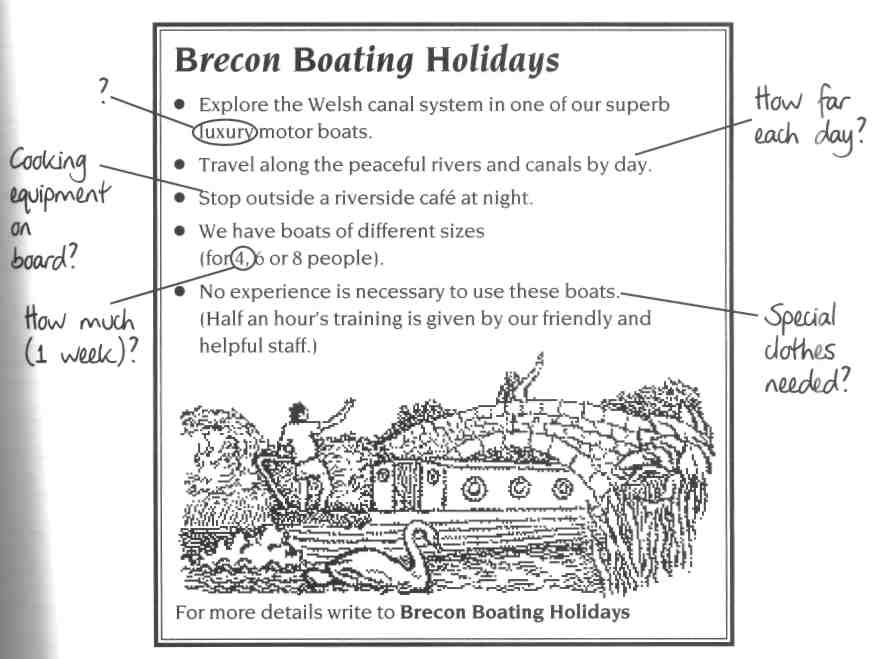
Write a letter of between 120 and 180 words in an appropriate style on the next page. Write IMAGINARY addresses.
Assignment 2. Use the information in the grid to write short descriptions, using compound adjectives with numbers.
| Tour | Number of centres | Duration | Hotels | Category | Location | Other |
| a) Sicily | two | 7 nights | Fortuna Ponte Nuovo |
***** ***** |
Palermo Cefalu |
HB Traditional restaurant (number of courses: 4) |
| b) Goa and Taj Mahal | two | 14 nights | Goa Beach New Delhi |
**** *** |
On beach 5 miles from the city centre |
HB Guided tours=3 days |
| c) Turkey and Taurus Mountains | three | 14 nights | Dalaman Simena Kas |
** ** ** |
Escorted hiking FB Evening meal:3 courses |
|
| d) Orlando and Cayman Islands | two | 10 nights | Orlando Supreme Cayman Grand |
***** ***** |
10 miles from Disney World on beach | In Orlando: visit theme parks Cayman: beach HB Restaurant =***** |
Note: FB= full-board / HB= half-board
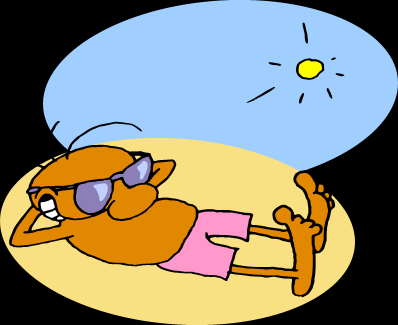
11.5. Speaking Reinforcement
Assignment 1. Complete the story. Then get ready to act out a dialogue based on it.
Just after Christmas two years ago, Jack and Liza decided to go away for New Year. They didn't want to stay in a hotel with crowds of people and they were delighted when they saw an advertisement in the Sunday Times for a holiday flat in a village near Oxford. It was no ordinary flat. It was on the top floor of an old Tudor mansion. They booked it and on New Year's Eve they set off in the car. It was raining and freezing cold. They were happy and excited. They had been driving for three hours when they saw the house in the distance. It looked magnificent with tall chimneys and a long, wide drive. They drove up to the huge front door, went up the steps, and knocked. Nothing happened. They knocked again. The door opened and a small, wild-looking, old lady stood there.
...
When they got outside again the rain had turned to snow. They ran to the car, laughing. They felt that they had been released from a prison and now they wanted to be with lots of people. They drove to the next village and as midnight was striking, they found a hotel with a room for the night. 'Happy New Year!' cried Jack, as he kissed the surprised receptionist on both cheeks. 'You have no idea how beautiful your hotel is!'
Get ready to act out the following dialogue between Jack (J) and Lisa (L) sticking to the main ideas:
J: And it was really frightening, wasn’t it?
L: Well, yes, it was like something out of a horror movies. This woman was so thin and bent, she had long, straggly grey hair, and dirty old torn clothes. The smell was ...
J: But..., but the worst thing were the bandages!
L: Oh, yes! She had bandages on her wrists and round her legs ...
J: ... yes both legs. And these bandages looked as if they had been on her for weeks. They were grey, and absolutely covered in blood.
L: Goodness knows what she'd done to herself, but the wounds obviously hadn't healed.
J: And under one arm she was carrying a cat, and in her other hand there was a large glass of whisky! She could hardly stand up straight!
L: Yes, she was swaying from side to side, spilling her whisky, wasn't she? Anyway, she asked us in, so we tried to hide how terrified we were, and we followed her in. The house was so old and dark and dirty ...
J: ... and it absolutely stank of cats. There were cats everywhere. Up the curtains, on the bookshelves, on the stairs ... It was unbelievable. And when she was leading us upstairs, suddenly two huge dogs, really huge dogs, the size of horses, came charging out of a room and nearly knocked us over!
L: So you can imagine how we were starting to feel. Like, do you really have to stay here? At New Year? And pay for it?
J: But the worst was still to come. When we got to the rooms, we couldn't believe it. All the furniture was broken, there were no curtains ...
L: It was absolutely freezing. There was no heating apart from one little electric fire for the whole place. In fact, there was only one power point, so you had to make a choice. You could either have the television, or the lamp, or the fire, but you couldn't have more than one.
J: We just looked at each other and knew that we couldn't stay. What did we do? Well, we didn't even try to be polite.
L: We just said that it really wasn't what we wanted and we couldn't possibly stay there, and left. J The lady said we'd lose our deposit ...
L: A £10 deposit... which was cheap at the price, I'll tell you! J And we just ran!
Assignment 2. Be prepared to share your impressions of your best ever holidays. Provide details. Make sure you can use the active vocabulary properly.
